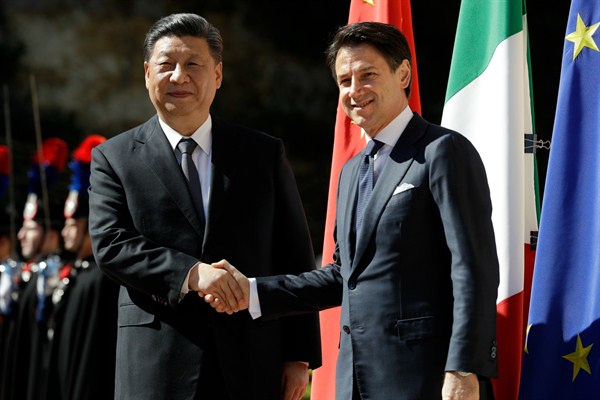On March 23, Italy officially joined China’s Belt and Road Initiative, or BRI, an expansive development strategy first unveiled in 2013 that aims to build a network of roads, railways and ports connecting China with more than 60 countries across Africa, the Middle East and Europe.
In addition to the memorandum of understanding on the infrastructure-building initiative, signed during Chinese President Xi Jinping’s visit to Rome last week, the two countries agreed on a constellation of deals worth 2.5 billion euros ($2.8 billion), ranging from banking and energy to sports. The visit’s outcome reflects deepening relations between the eurozone’s third-largest economy and the Asian powerhouse.
Italy is the first member of the Group of Seven, or G-7, to back the BRI, in what some have seen as a defiant act toward an already embattled European Union and a diplomatic coup for Xi. The decision to sign up to the initiative bears the stamp of the Five Star Movement, the euro-critic, anti-establishment party that, along with the far-right League, governs the country in a populist coalition. Matteo Salvini, the head of the League and deputy prime minister, took a more circumspect view of the deal, but expressed support as long as it did not undermine Italy’s national interests.

